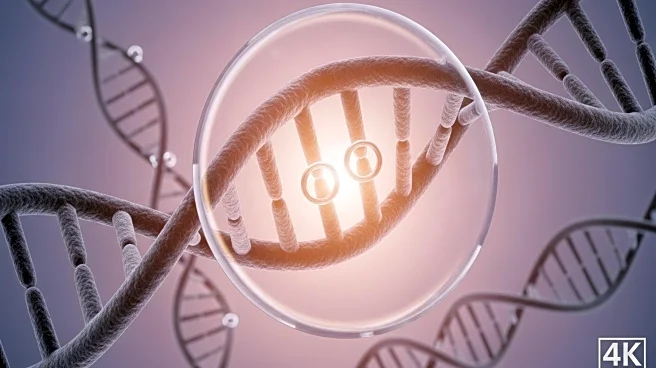What's Happening?
An international team of scientists has discovered that extrachromosomal DNA (ecDNA) rings play a significant role in the development and progression of glioblastomas, a common and aggressive form of adult brain cancer. The study, published in Cancer Discovery, reveals that these ecDNA rings, which contain cancer-driving genes, often appear in the early stages of glioblastoma, potentially before the tumor fully forms. This discovery could lead to new methods for early diagnosis and treatment of glioblastoma. The research was conducted by team eDyNAmiC, funded by the Cancer Grand Challenges initiative, which aims to tackle the toughest challenges in cancer research.
Why It's Important?
Glioblastoma is notoriously difficult to treat, with median survival rates remaining low despite advances in medical science. The identification of ecDNA as a driver of glioblastoma offers a new avenue for research and potential treatment strategies. By understanding the role of ecDNA, scientists may develop tests to detect these DNA rings early, allowing for intervention before the cancer becomes more aggressive and resistant to treatment. This could significantly improve patient outcomes and survival rates, offering hope for those affected by this devastating disease.
What's Next?
Researchers plan to further investigate how different treatments impact the presence and types of ecDNA in glioblastoma. Team eDyNAmiC will continue exploring the role of ecDNA across various cancer types to uncover opportunities for earlier diagnosis and more precise tracking of cancer progression. The ultimate goal is to design smarter, more effective treatments tailored to the ecDNA profile of individual tumors.










